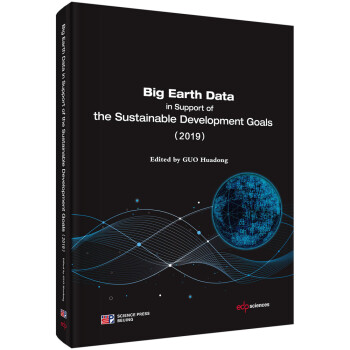内容简介:
本书为《地球大数据支持可持续发展目标报告》的英文版,汇聚围绕6个SDGs目标所开展的案例研究、指标建设和可持续发展状态评估。报告总结了27个典型研究案例,这些研究案例分别从全球、区域、国家以及典型地区四个尺度在数据、方法模型和决策支持方面对相关SDGs目标和指标进行了深入研究和评估,提供了较为系统的方案。27个典型案例覆盖的20个SDGs指标,在数据库建设、指标体系建设、指标进展评估等方面各有侧重。每一个典型案例首先清晰地列出对应目标和指标,然后依次从研究方法、所用数据、结果分析和展望四个方面展开。可以看出,地球大数据作为新的科学方法论的生命力和巨大应用价值,特别是为中国和其他发展中国家和地区提供SDGs监测评估服务这种新型公共品的前景已经开始展现。
目录:
Contents
Preface i
Foreword v
Executive Summary xi
Map of Cases on Big Earth Data for the SDGs xvi
List of Cases on Big Earth Data for the SDG sxvii
Chapter 1
Big Earth Data for SDGs /1
Data-intensive Paradigm /2
Big Earth Data /3
Big Earth Data for Implementing SDGs /4
Chapter 2 SDG 2 Zero Hunger
Background /10
Contributions /11
Case Study /12
Global crop production per labor unit assessment based on Big Earth Data /12
Assessing progress towards sustainable cropping systems: the case of China /19
Conclusions /23
Chapter 3 SDG 6 Clean Water and Sanitation
Background /28
Contributions /29
Case Study /31
Monitoring the proportion of urban population using safely managed drinking water services in China /31
Analysis of surface water quality in China /34
Crop water productivity for the SDG assessment of agricultural water use efficiency: the case of a typical irrigation district in Morocco /37
Mapping the extent and dynamic change of mangrove forests in Southeast Asia /42
Surface water changes in Central Asia /46
Conclusions /50
Chapter 4 SDG 11 Sustainable Cities and Communities
Background /54
Contributions /55
Case Study /57
Proportion of the population with easy access to public transportation in China /57
Monitoring and assessing urbanization progress in the countries and regions along the Belt and Road /61
Preliminary study and suggestions for modifying indicator SDG 11.4.1 /68
Monitoring and analyzing fine particulate matter (PM2.5) in China /74
Proportion of urban open public space in China /77
Conclusions /81
Chapter 5 SDG 13 Climate Action
Background /84
Contributions /85
Case Study /86
Disaster monitoring and analysis of the SDG 13.1.1 indicator in countries and regions along the Belt and Road /86
Global atmospheric CO2 concentration changes in response to climate change /92
Cognition of climate response to glaciers and Arctic sea ice /96
Conclusions /100
Chapter 6 SDG 14 Life below Water
Background /104
Contributions /105
Case Study /106
Construction and application of an integrated eutrophication assessment model for typical coastal waters of China /106
Ecosystem health assessment in Jiaozhou Bay, China /110
Conclusions /115
Chapter 7 SDG 15 Life on Land
Background /118
Contributions /119
Case Study /121
Forest cover mapping to monitor terrestrial ecosystems in Southeast Asia /121
Assessment of conservation priority for global national parks /125
Study on forest protection proportion indicators /130
Evaluating the effectiveness of the management of protected areas: an example from Qianjiangyuan National Park in China /134
Big Earth Data for global land degradation assessment /140
The proportion of degraded land to the total land area in Central Asia /143
Identifying land degradation area and risk control countermeasures in Mongolia and along the China-Mongolia railway /146
Applications of the Mountain Green Cover Index in countries and regions along the Belt and Road /150
Evaluation of the Red List Index of threatened species in China /155
Assessment of giant panda habitat fragmentation /159
Conclusions /164
Chapter 8
Summary and Prospects /167
References /172




好评度